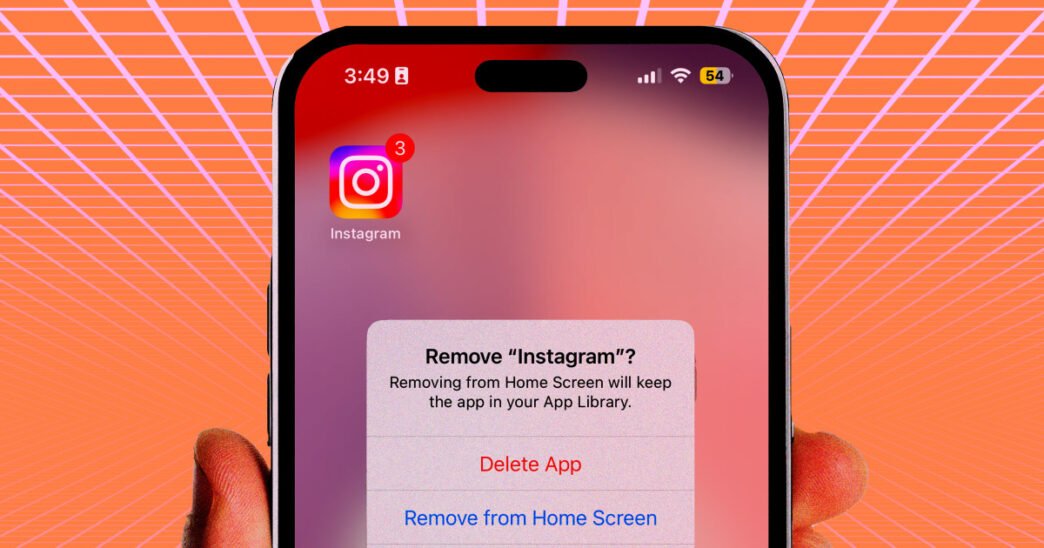After Meta and its CEO Mark Zuckerberg announced a series of changes that shifted the company and its policies to the right ahead of President-elect Donald Trump’s second term, some users are fleeing the company’s platforms, including Facebook, Instagram and WhatsApp.
In the barrage of changes made in recent weeks, the company ended its third-party fact-checking program in the United States and said it would pull back on content moderation around political discourse. Instead, Meta will use a community notes system similar to Elon Musk’s X. Updates to Meta’s policy on hateful conduct include that LGBTQ people can now be called mentally ill because of their identities. Meta also disbanded its diversity, equity and inclusion team.
Zuckerberg isn’t the only Big Tech billionaire currying favor with the incoming president. Musk and Jeff Bezos will both be seated in prominent spots at Trump’s inauguration Monday. But Meta’s changes, along with Zuckerberg’s personal appeals to Trump, have caused a cascade of reactions among its users.
NBC News reviewed hundreds of posts and comments across various social media platforms that said users would delete their Meta accounts, stop posting or boycott the company in response to the changes. The exodus is reminiscent of when X (formerly Twitter) users left the platform in large numbers after the 2024 election.
“I no longer feel safe to post on either platform as a queer Chicana woman,” said Marie Valencia, a full-time artist who had more than 20,000 followers on Facebook and Instagram before she stopped posting. The term Chicana refers to American women of Mexican descent. “I have seen a steady stream of folks abandoning their profiles as well, especially in the last couple weeks as Meta has dismantled DEI and speech protections for those most vulnerable online.”
Valencia has moved to posting on Bluesky, an alternative to X, as well as a platform for Latina women called Amigahood. “Meta will become another X,” Valencia said.
Cord Jefferson, director of Academy Award best picture nominee “American Fiction,” announced Sunday that he was leaving Instagram, but would remain active on Tumblr.
“So many things are getting bleaker and grosser by the day. And while we can’t place the blame for all of it at the feet of tech oligarchs, we can place the blame for a lot of it at the feet of tech oligarchs,” Jefferson wrote on Instagram. “I’m doing what little I can to shut the increasingly stupid ideas that shape online spaces like this out of my life.”
Some people have abandoned some of Meta’s platforms while continuing to use others. Stanford University law professor Mark Lemley, who represents Meta in a copyright dispute involving artificial intelligence, announced Monday that he would be dropping the company as a client and reconsidering his use of Meta’s platforms.
“I have struggled with how to respond to Mark Zuckerberg and Facebook’s descent into toxic masculinity and Neo-Nazi madness,” Lemley wrote. “While I have thought about quitting Facebook, I find great value in the connections and friends I have here, and it doesn’t seem fair that I should lose that because Zuckerberg is having a mid-life crisis.”
Lemley said he deactivated his account on Threads, Meta’s X alternative, and that he will no longer buy products from ads he sees on Facebook or Instagram. Instead, he wrote that he will “go separately to the website to make sure Facebook doesn’t get any credit for the purchase.”
The people leaving Meta still make up a small percentage of its overall user base. Close to 2 out of 3 people in the United States are on Facebook. There are almost 170 million Instagram accounts in the U.S. and almost 100 million accounts on WhatsApp. A weeklong “Lights Out” boycott of Meta platforms starting Jan. 19 attracted a few hundred likely participants in a Facebook group.
Some users have said they feel trapped on Meta platforms, especially WhatsApp, because they use the services to communicate with family members, friends and personal networks. Others have built platforms as influencers or for organizations and small businesses.
Stacy Kess, founder of the nonprofit news organization Equal Access Public Media, told NBC News that she was “disheartened” to see other people and organizations in the disability community continue to post on Meta platforms after the policy on hateful conduct was updated to allow calling LGBTQ people mentally ill.
“I just saw so many people still actively posting on Instagram, and I wondered how many of them knew about the policy change,” Kess said. “That should be a hard line for both the disability and the LGBTQ community.”
Equal Access Public Media has accounts on Facebook, Instagram and Threads, which issued statements concerning the policy change Tuesday that said “EAPM condemns this policy allowing dehumanizing and ableist language. We will continue to post elsewhere.” The organization, which is raising funds to produce accessible news products in video, audio, American Sign Language and simplified English, has its largest following on Bluesky.
“We don’t feel like we’re taking a moral absolutism kind of stance, we feel like we’re just living our values by saying ‘This is not OK,’” Kess said. “We’ll continue to explore other options, because we know that there are other options.”













